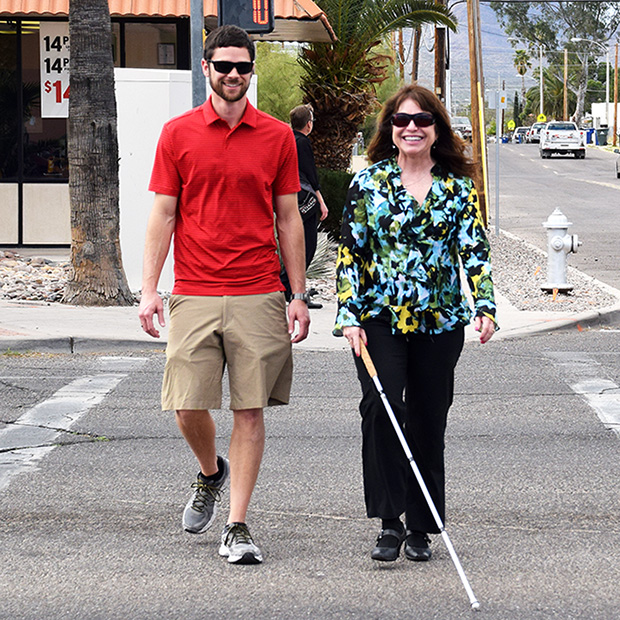Opening Our Eyes To Blindness Awareness

Hollywood’s portrayal of blind people has come a long way from the old stereotypes of canes and dark glasses.
Especially with characters like Daredevil gaining popularity, it’s getting easier to find examples of fictional blind people being amazing. While blind people in real life don’t have crime-fighting superpowers, they do lead just as complex and interesting lives as sighted people. So, in the spirit of World Blindness Awareness Month, we’re going to discuss visual impairment.
What Is Visual Impairment?
A wide spectrum exists between better-than-20/20 vision and total blindness. Some people require no corrective lenses at all, but many need them to correct nearsightedness, farsightedness, or astigmatism. As soon as vision can no longer be fully corrected by glasses or contacts, it enters visual impairment territory. However, not all vision impairment is the same.
Low Vision Can Mean Many Things
Having low vision means having difficulty performing normal visual tasks, even with corrective lenses. One cause of low vision is macular degeneration, where the central vision is blurred but the peripheral vision is intact. Another is a narrowed field of vision, where the peripheral vision is limited but the central vision is normal.
Some other conditions that fall under the umbrella of visual impairment include:
- photophobia (the inability to look at light),
- diplopia (double vision),
- visual distortion or distortion of images,
- and difficulties with visual perception.
Even Total Blindness Is A Spectrum
Total blindness isn’t the same for everyone either. Some are born blind, while others lose their vision quickly or over an extended period of time. Some blind people have a slight ability to perceive light, while others see nothing at all.
To learn a bit more, watch the video below to hear Tommy Edison explain what he sees:
[iframe https://www.youtube.com/embed/ZDHJRCtv0WY?rel=0 620 349]
How Can Sighted People Help?
The most important thing to remember about people who are blind or have low vision is that they are still people. They aren’t fragile or less intelligent, and they won’t appreciate being treated as such. One thing sighted people can often assist the visually impaired with is mobility, but it’s critical to ask first and not just assume they need help. If they accept, ask which side they want you on, walk at a reasonable pace, and describe upcoming obstacles that can’t be avoided, like curbs and stairs.
If you come across a visually impaired person with a guide dog, the number one rule is to never distract the dog while it’s working, because any distraction can cause serious difficulty for the owner.
We Can Be Their Eyes
Obviously, as optometrists, we want to help as many people as possible keep or recover strong, functional vision. Unfortunately, modern medical knowledge, technology, and resources are still a long way away from being able to do this for everyone. In the meantime, what all sighted people can do is offer support and assistance to the visually impaired people we have the privilege of knowing personally or encountering throughout our day.
